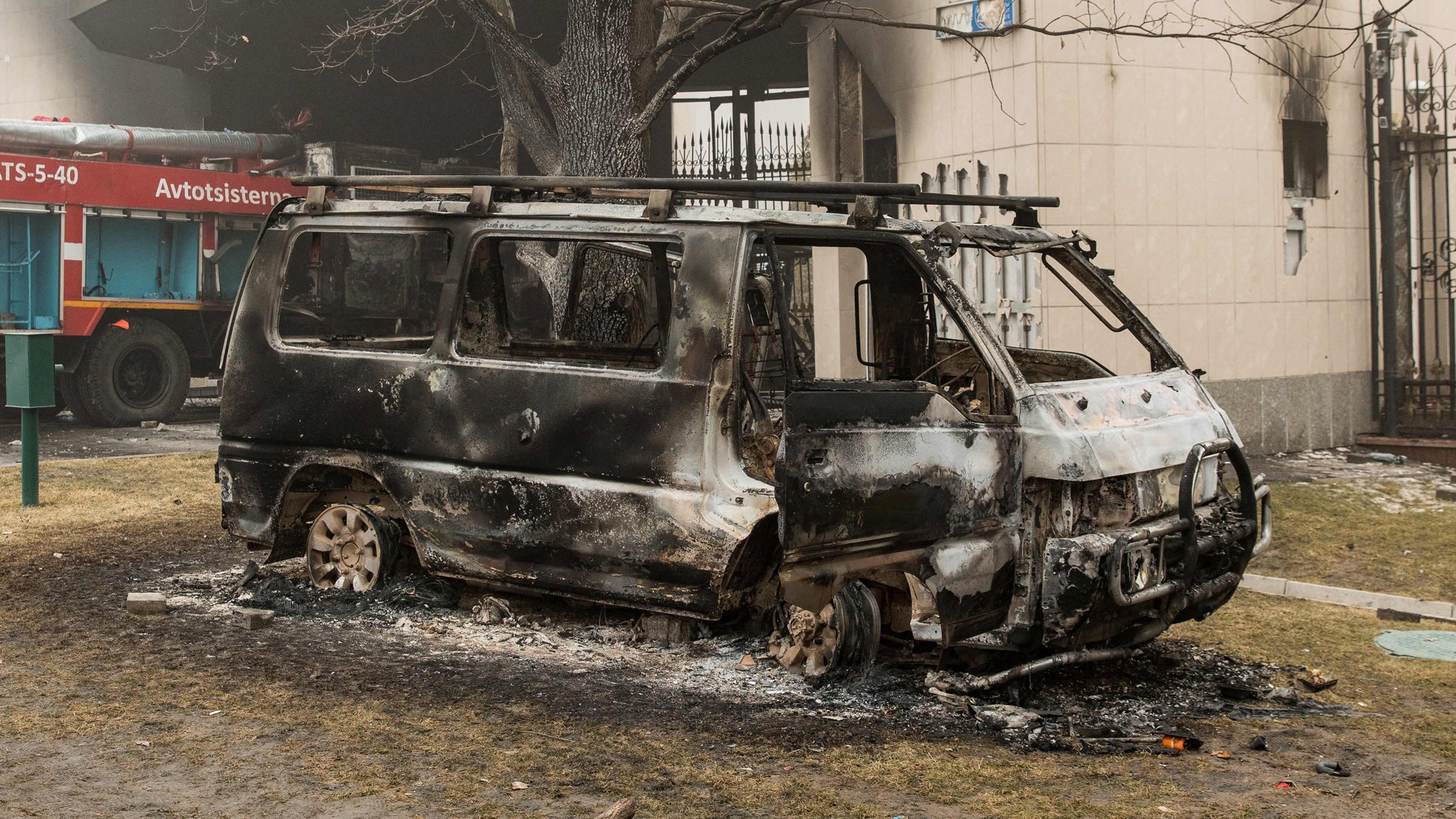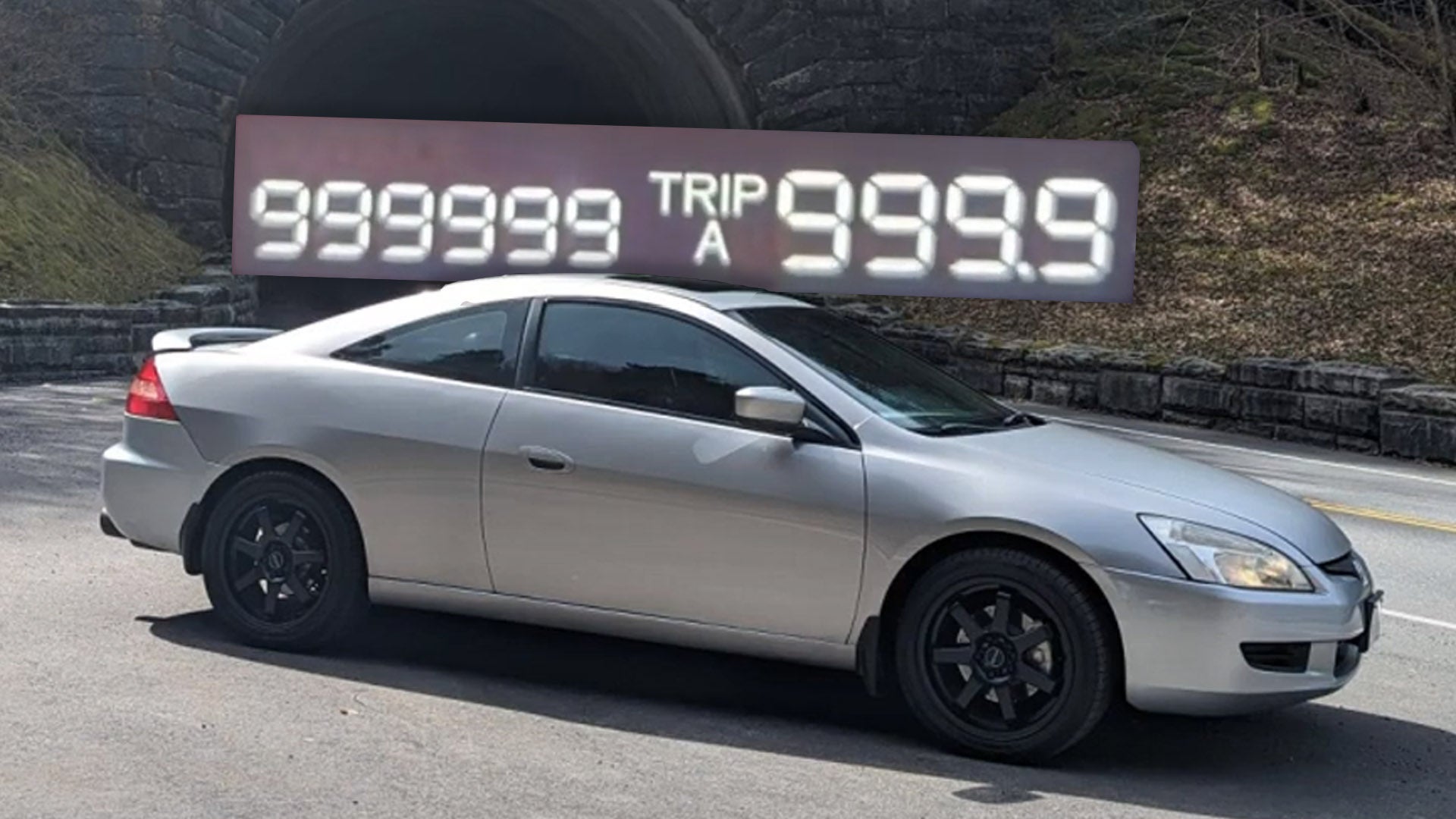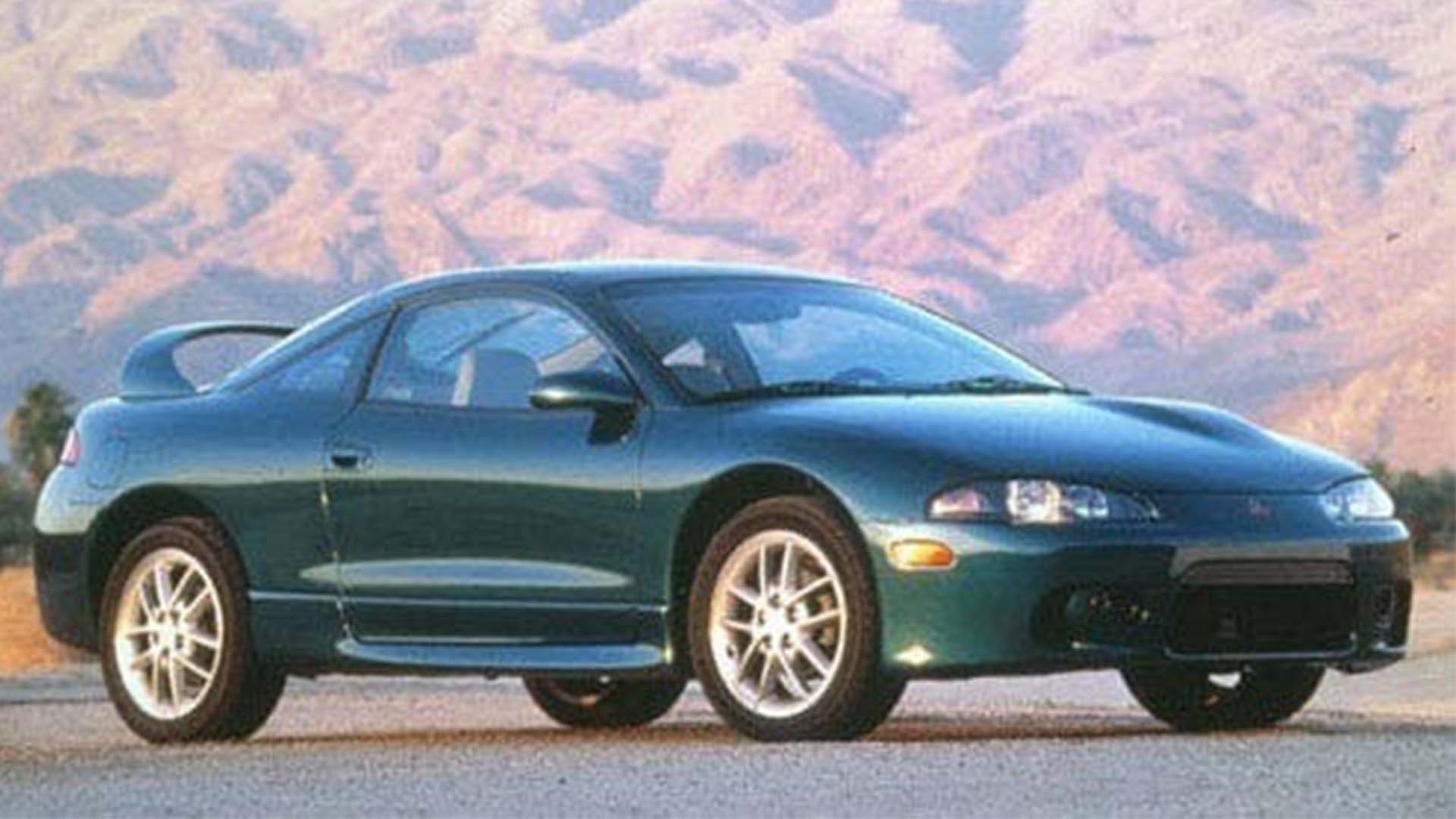There’s not always a car angle to intense insurrections that have led to days of lethal conflict between government and citizens. Plenty of wars are fought over oil and gas, of course, but they tend to be the international sort, not domestic uprisings. That's what's going on in Kazakhstan right now, and while my colleagues over on The War Zone are also covering the breaking news events there, I’m hitting it up here on The Drive given the reason behind the unrest.
Protests kicked off in Almaty, the largest city in Kazakhstan—a gigantic but not very highly populated country the size of Western Europe—when the government removed a cap from gas prices. As a result, prices more than doubled immediately. Violence exploded across Kazakhstan with Almaty's airport seized, and now, Russian troops are arriving to allegedly quell foreign terrorists. Dozens of people are dead and clashes between the state and protestors have been bloody, while a national internet blackout stopped information from getting out.
In automotive terms, Kazakhstan is pretty similar to a lot of the former Soviet fringes, with most cars running not on gasoline but actual gas. If you head out to the eastern end of the former USSR, then get used to the putter of liquefied petroleum gas engines and the unreassuring thunk of an aging gas canister rolling around in the trunk.
Fun in vintage Ladas aside, there’s also not a lot of transport infrastructure aside from roads. Even in somewhere like relatively tiny, privileged, and at least cosmetically democratized Georgia, if you’re looking to move around, then driving or being driven in a marshrutka are the only real options.
In Kazakhstan, the average household income in 2020 was just $2,935.22, but there was a peak of 4,047,767 cars registered on its roads in 2018 for 18.7 million people. That’s a car for every five-ish people, so pretty much one per household. And overwhelmingly, they're fueled by butane or propane, which means that oil-producing Kazakhstan has a strange disconnect between the fuel people are buying and its own products.
On Jan. 1, the government removed a price cap on butane and propane, which account for the fuels for up to 90 percent of Kazakh vehicles in some regions like Mangystau. That's actually one of the places that produces the most fuel, facing fellow former Soviet oil state Azerbaijan across the Caspian Sea. As well as Almaty, Mangystau was where protests first hit a flashpoint when propane and butane prices instantly doubled, from $0.15 per liter to $0.30 according to Reuters.
Kazakhstan is nominally a democracy but former president Nursultan Nazarbayev was in power for more than three decades, unopposed. His policies are a lot of what people are so angry about, with Kazakhs wanting freedom and transparency from Nazarbayev, who did things like name the capital (Nur-Sultan) after himself and whose family reportedly has a mafia-like grip over the Kazakhstan economy.
Current president Kassym-Jomart Tokayev sacked Nazarbayev from a political role he still held, as head of the security council, and the government has promised to reinstate fuel subsidies for at least six months to try and quell the violence. But people are angry now and the harshness of winter in landlocked Central Asia isn't going to stop them. In a country where there's no political opposition to the ruling party, the only clear option to speak out against the regime is demonstrations.
Tensions have continued to rise, with the Tokayev giving police and troops a shoot-to-kill order on protestors on Jan. 7. There's a very specific tragedy unfolding here, which is that the people of Kazakhstan took to the streets about a local, specific issue that impacted their daily lives. Fuel prices and specifically the government manipulating those to try and sell more local product, are an everyday, meaningful problem that can't be brushed aside as politically motivated by one ideology or another.
The narrative that troops are firing on people who either are foreign terrorists or have been coerced by them seems like a way to justify killing people with genuine, specific complaints. The need to be able to access fuel for a car you're dependent on, especially in such a vast country, is going to be an incredibly important point as this unfolds because it's the pin the truth can't get torn off: these protests started because people in Kazakhstan wanted to fill up their cars.
Got a story tip? Mail it in on [email protected]









